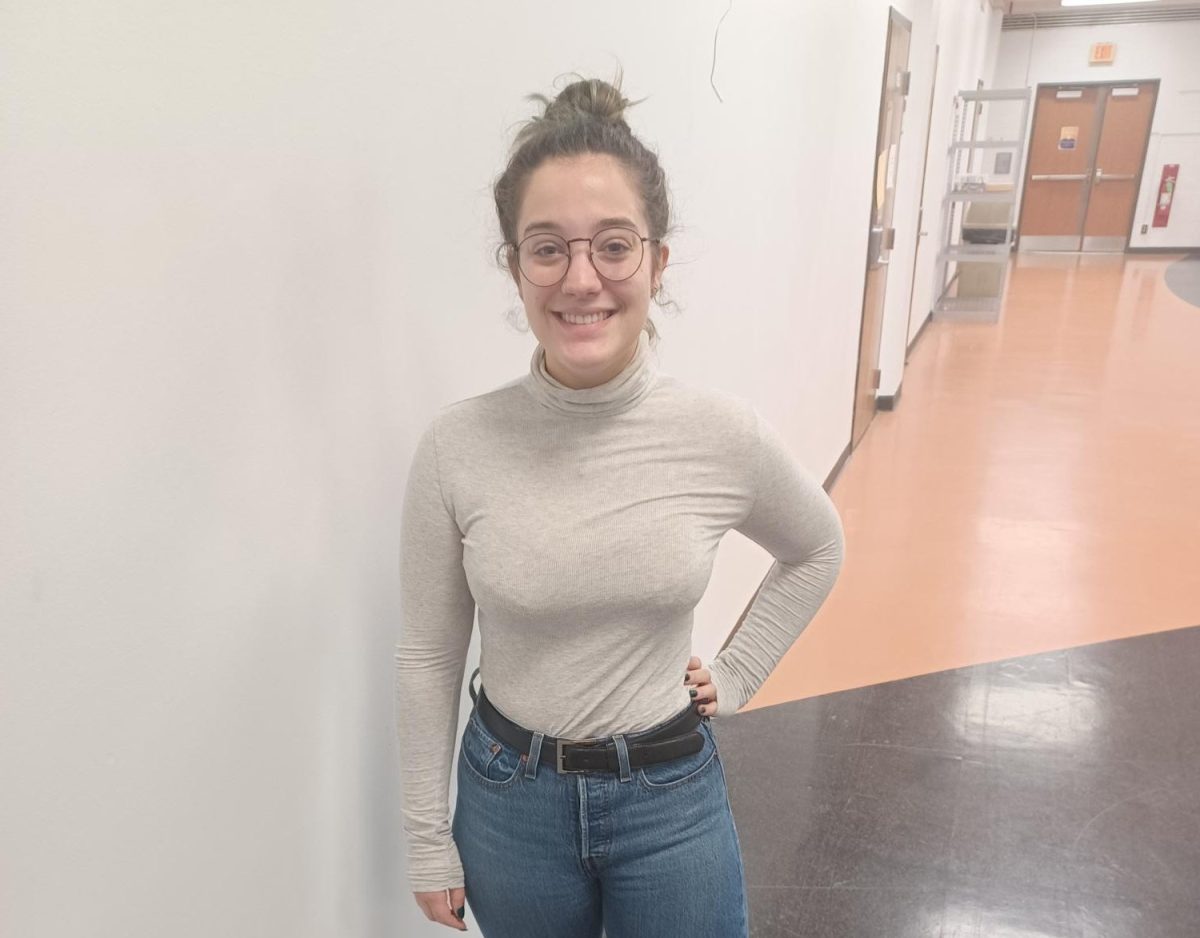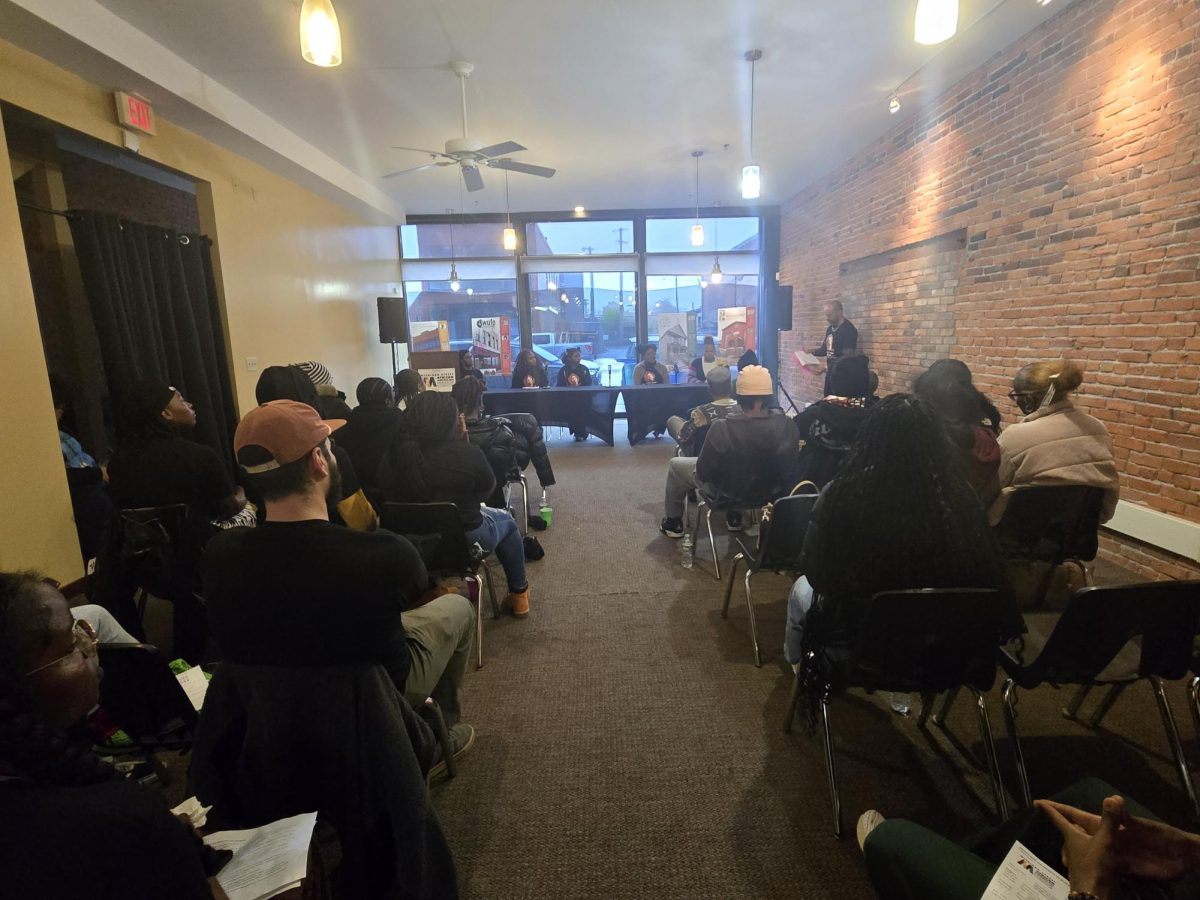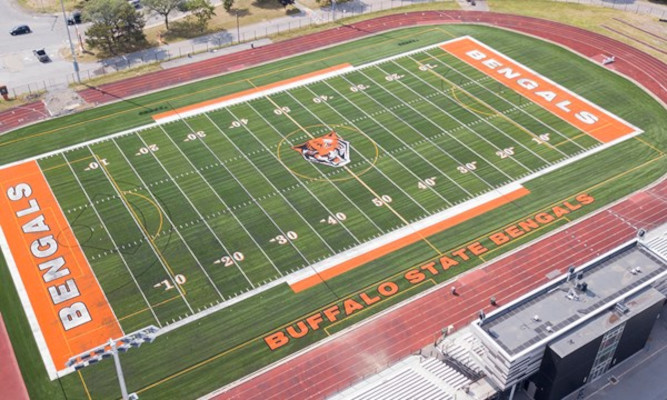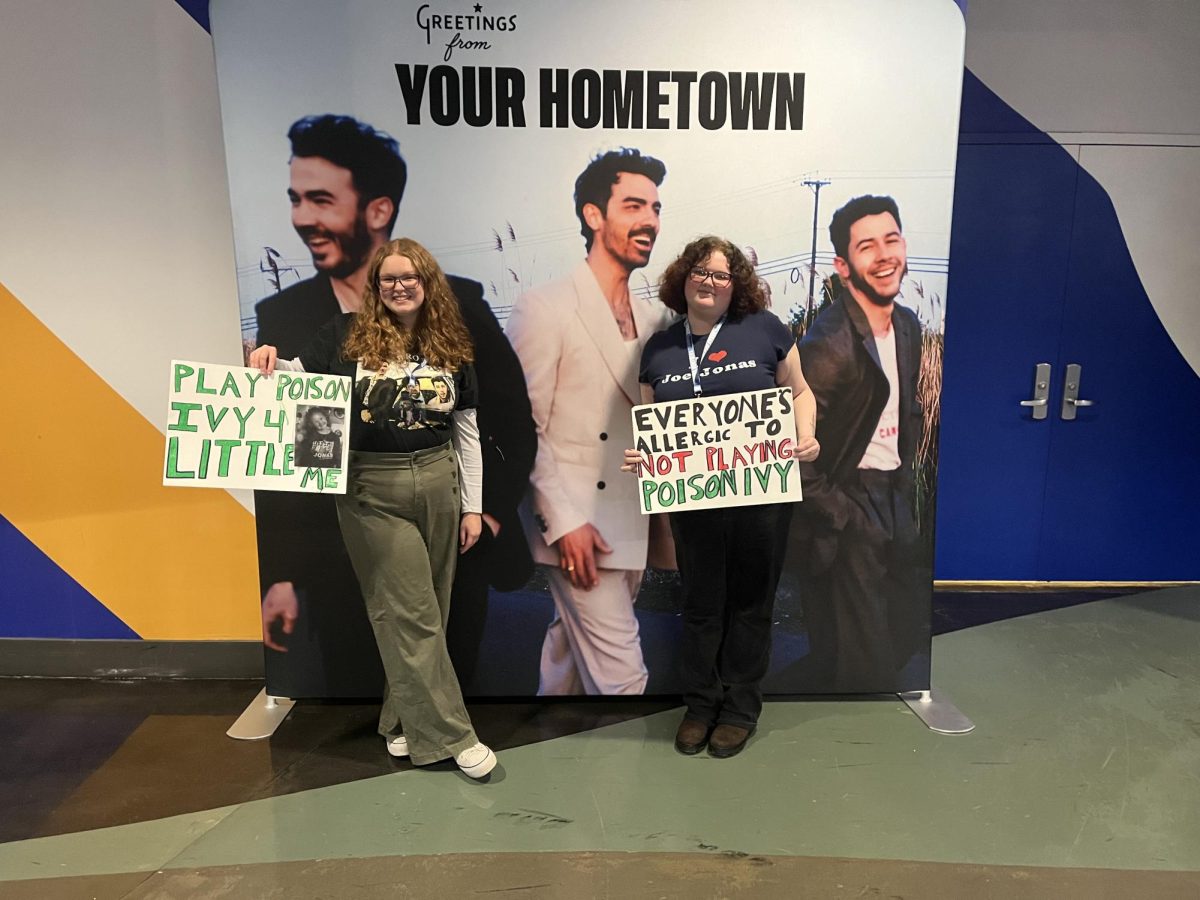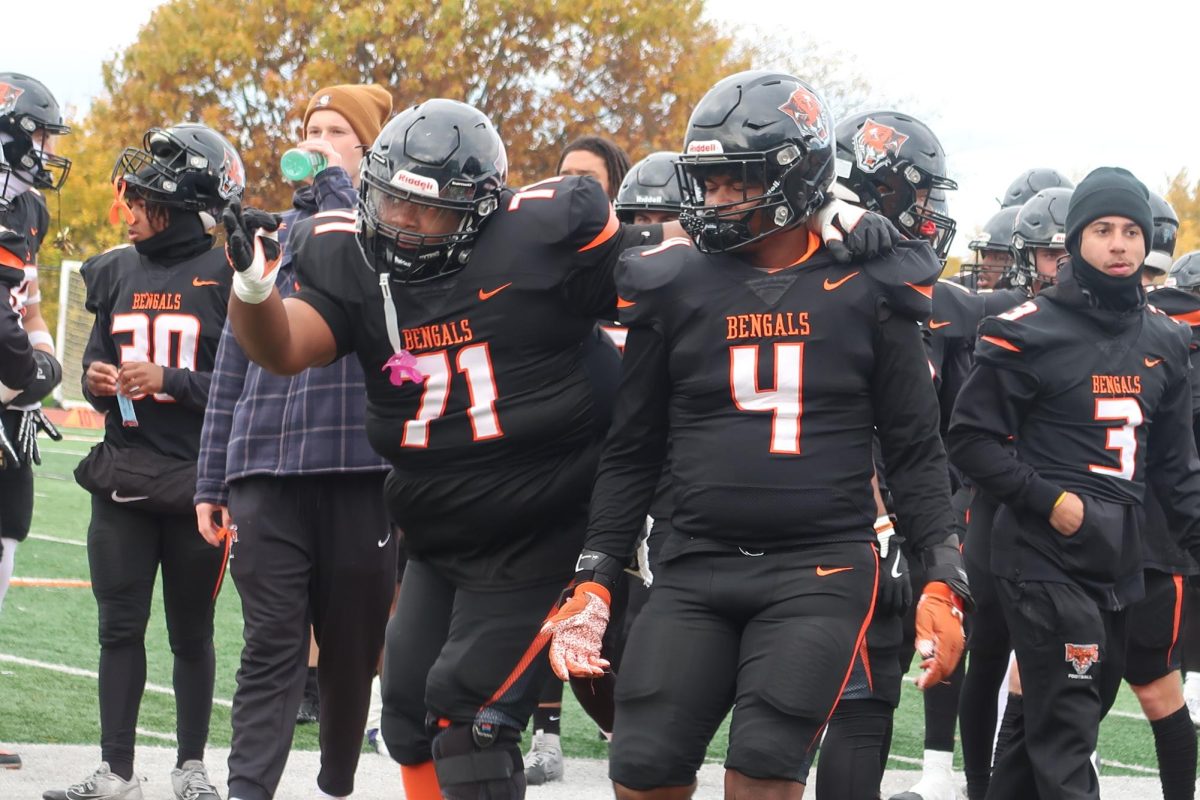Is the United Students Government (USG) simply a mechanism of paternalism? What do the inner workings of USG even look like? Do the inner workings consist of red tape? And, if so, how much red tape?
While USG may appear paternalistic from time to time, as with any bureaucratic entity, the decision-making process is far more complex than what may be visible at the surface.
Beneath the surface, USG includes numerous students who possess a substantial degree of passion and commitment toward its campus and the students who attend Buffalo State University.
Allarae Prigan, a biology major with a concentration in Aquatics, is the USG Executive Vice President (EVP). She is eager to support USG’s constituents, and works relentlessly to serve and advocate for the student body.
Prigan not only provides insight into the decision-making processes of USG, but also discusses her role as the USG EVP. She also shares insight into the relationships between the Senate, Executive Branch, and Judicial Council.
The interview was edited to increase clarity and brevity.
Tell me about a specific action USG took this semester behind the scenes that students might not know about.
I would say our participation in the College Senate is something that people don’t realize USG does. USG works on the internal parts of regulating the budget for all the organizations. That is our biggest task. We also have some sub tasks like programming and advocacy. One way we advocate is through the College Senate. The College Senate is the governing body for the school, with professional staff, faculty, and undergraduate and graduate students. Most of the USG E-board is also on the college Senate, advocating for students in a room where there is predominantly faculty and staff. We are there making sure student voices are being heard on policies that typically wouldn’t have student voices.
Could you describe a decision that USG had to make in 2023, perhaps an undesirable decision that student organization leaders disliked, as a result of USG’s metaphorical hands being tied? In other words, can you recall a situation in 2023 where a decision needed to be made, but it was beyond the control of the USG Executive Board to change the decision?
We rely on our student activity fee for funding our organizations. I want to start by saying that the student activity fee is heavily regulated by SUNY. With that, we have to enforce SUNY guidelines when it comes to the allocation of any funds to organizations. That’s where a lot of our deadlines come in, including one-month submissions for purchase orders (PO’s) to maintain SUNY guidelines because it gives us adequate time to review what those funds are being used for and if they uphold SUNY standards. When orgs submit a PO that is a little late for an event, we are unable to provide those funds. There is some pushback from that. When policies aren’t followed, it doesn’t give us enough time to review what those funds are being used for.
One of the SUNY guidelines that we have to follow tends to not want to get followed is: not allowing non-Buffalo state students in at events. If there are non-Buffalo state students at events, that’s against SUNY guidelines regarding how we use the student activity fee. It can’t be used for faculty either. When we have to enforce that, it can be one of those things where even though we love that orgs want to bring outside community partners in, we can’t use the funding for that. It’s to protect the funding and the money. If students are putting in money into a student activity fee, that money needs to go back to the students. It shouldn’t be used anywhere else, and I will advocate for that as well.
What drew you to the position of USG Executive Vice President?
So, in high school, I was a part of the Associated Student Body, or ASB, for short. I was the secretary. Even though I have no intentions of pursuing a career in politics or policy, I like being there for people. Whenever I’m in positions of “power”, it’s not about the power, or making and enforcing policy: to me, it’s about advocating for students, and making sure that students have a voice in the room with people who may not be thinking about students as their priority. Even though the work that we do may not always get seen by everybody, I want to be a student voice in the room where there are not typically student voices. And I want to make sure that we are heard even if there are people who don’t necessarily want to hear us.
Intergovernmental relations entail, simply put, the relationships and dynamics among governmental branches and agencies. In terms of student government, how does the USG Executive Board ascertain a strong relationship among the Senate, the Executive Branch, and Judicial Council? As the USG Executive Vice President, do you find that the USG Executive Board encounters any challenges with maintaining effective and communicative relationships among the branches?
We went through a very hard patch with COVID, where most of our positions went unfilled. For reference, at the end of the semester before we filled any of our AVP positions, I was the Campus Programmer, the Org Relations person, and the Executive Vice President for two or three weeks. I was also doing those positions through the summer because they weren’t filled. This semester, we have our first full E-Board since before COVID.
There are definitely some issues with communication that are surfacing because more people means more hands in the pot. With more people, there’s a higher risk of miscommunication. That is one thing we have been working hard on this semester on fixing. One goal I personally have is: I want to better incorporate our Judicial Branch with the things that we do. Typically, our Judicial Branch is called upon if there is a grievance. To me, that feels as though Judicial Council is an island that gets brought in whenever they’re needed. I want to find a way to help better inform and involve the Judicial Council into our fold.
Regarding the actual Executive Board and Senate, I do think that we have decent communication through those branches. There are some issues where there will be miscommunication occasionally regarding events and when things are happening; that just comes from having a fresh E-board with new people who are still learning the ropes. At the end of the day, I believe that we are human, and mistakes happen. I am here to help. People learn I’m not here to berate people for making mistakes.
As the USG Executive Vice President, how do you support maintaining a collaborative relationship with USG student organizations? Also, what role do you play to support the USG President, and other USG officials, in addressing conflicts or concerns that may arise with USG student organizations?
Our main goal is the allocation of the student activity fee and working closely with SLE through the school to make sure that our organizations can receive that funding and receive space on campus for their events. We provide the training that the orgs need to effectively maintain their events and their internal work. We help maintain that relationship with SLE so that those events can happen on campus.
I think there’s a lot of confusion as to what we personally do with the process. This can lead to frustration from our orgs directed at us, which I completely understand as frustrations are a human emotion. I never take it personally, but there is just some misunderstanding with how it is formatted. SLE manages buildings like the Student Union building and the space reservations in the Student Union; they are the ones who have the contracts that org. leaders have to sign for events that organizations must have signed by us as well. The school manages the space and sets guidelines. We provide the funding, and we make sure what they are doing is adequate use of the funding. We might send a representative to an event to make sure that if the organization needs any help, there’s somebody there who can help them and to help make sure that guidelines are being followed. This way, we protect the money that is paid for by students and used for students. At the end of the day, my whole philosophy is: I am for students. We do have policies we must uphold to maintain order within the organization.
I am the internal manager of USG. We are separate from Buffalo state. We are our own little island that has a railroad that connects to Buffalo State. We receive support from them, we receive recognition from them, but we are not actually under Buffalo State. We are our own separate nonprofit corporation. Our President is the CEO (Chief Executive Officer), and I am the COO (Chief Operations Officer). I am the one who oversees everybody in USG: I help make sure that they’re doing what they’re supposed to do such as holding committee meetings, and if events are running efficiently. The President focuses on being the face of the organization and is the one who will do the meetings with VP Gordon. I’m making sure that we’re not burning down from the inside while she’s helping to project from the outside. If this were a business, the President is like the owner of the business and I’m the manager on duty, making sure the staff are doing what they’re supposed to do. I help support the AVP’s who then in turn, are the ones who help support our organizations. We all work together as a fluid group. Now, there will be miscommunications and some of our orgs have experienced the end of that miscommunication, but we always try to make sure that those things are rectified and even if we don’t always agree, we still make sure conversations are being had.
Thus far, what course would you consider to be your absolute favorite at Buffalo State University? Do explain why.
I’m a biology major with an emphasis in aquatic science and a minor in environmental science. I honestly have two favorite courses. One is Stream Ecology with Dr. Pennuto. It was a very difficult course, but it was very fulfilling. Dr. Pennuto is an amazing professor. He is genuinely one of the reasons why I think I am as good of a scientific writer as I am because he grades hard but gives good feedback. And that made me a better researcher and a better scientist at the end of the day. My second favorite one is what I’m taking right now: Arctic geography from the Inuit perspective. I like it because it’s very multidisciplinary. It takes both the science of the actual geography and the science of the Arctic as well as incorporates the Inuit. I have learned a lot in that class of thinking about the Inuit’s that I never knew before, and it’s a very different perspective. I feel schools give a US perspective on things. I never really knew much about Canadian history and the Inuit History until this course. I’ve learned a lot and it’s made me a better person.


